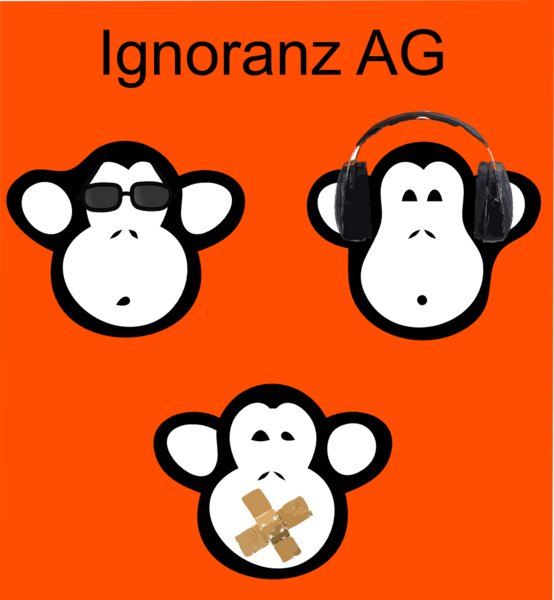Ferguson in battle against cancer
Sept 20, 2005 5:55:23 GMT -5
Post by Polarice on Sept 20, 2005 5:55:23 GMT -5
Former Habs tough-guy Ferguson in battle against cancer

RED FISHER
The Gazette
Tuesday, September 20, 2005
It was roughly three weeks ago that John Ferguson, now a special consultant to San Jose Sharks general manager Doug Wilson, decided it was time for his routine checkup before leaving for training camp. Nothing special. Nothing more than the usual blood tests and having his blood pressure taken. A biopsy.
He felt great approaching his 67th birthday. There was no reason to suspect anything was wrong.
Six days later, he was to learn from his doctor in Windsor, Ont., that something was terribly wrong.
Prostate cancer.
He undergoes radical surgery on Thursday in London, Ont.
"It's funny," he was saying quietly yesterday. "I mean ... turns out I did my golf tournament ... I've been doing it for 10 years now, with the money going to prostate cancer. My doctor comes back with the biopsy result and it's ... this thing. Geez! I've never missed a training camp before."
"It's certainly been playing on my mind, but I'm in good hands," he added. "My doctor recommended this chief surgeon, a Dr. Joe Chin, at a London hospital. He's the best there is. I've had a bunch of tests ... having a CAT scan today. It bothers me, but I'm ready for Thursday. I'm ready for the surgery."
Ferguson, who to this day remains one of the most popular players in Canadiens history, was more than the punishing fighter fans everywhere still talk about. Lots more. He was a player who did as much as anyone to bring five Stanley Cups to the Canadiens.
The story is told - and it's a valid one - how Canadiens GM Frank Selke was angry and dismayed with the way the opposition was manhandling his team since its astonishing run to five consecutive Stanley Cups ended in 1960.
Maurice Richard had left the team after the 1959-60 season. Doug Harvey had been traded to the Rangers before the 1961-62 season and while respect for the CH remained, the fact is the team was getting roughed up on the road.
In Selke's view, the team needed muscle. Fast!
"Go to Cleveland," he told Canadiens front-office employee Floyd Curry. "Take a look at this Ferguson guy. They tell me he's tough. Let me know what you see."
What Curry saw was John Bowie Ferguson, who was enjoying an AHL all-star 1962-63 season with 38 goals and 40 assists, firing a puck at teammate Terry Gray when he spotted him talking to a player from the opposing team during the pregame skate.
That was enough for Curry - and for Selke - who had watched his team fall into a three-season Cup drought after winning a record five in a row. The Canadiens obtained his rights for cash from the Barons in June, and Selke didn't have to wait long for a return on his investment.
I can remember talking to Fergy in the Canadiens room in the moments before the start of the season's first game. They were in Boston and, as you'd expect, he was visibly nervous - particularly since he had been told he would be in the starting lineup.
He held out his fingers.
"Look at 'em," he said, "the game hasn't even started and they're already dripping with sweat."
Ten seconds into the game, he became involved in a free-swinging scrap with Bruins defenceman Ted Green, at the time one of the NHL's most feared fighters. Fergy won the fight and, as it developed, the game as well, with two goals in a 3-2 victory.
Ferguson, the fighter, scored 18 goals in his rookie season. The Canadiens failed to win the Cup for a fourth consecutive year, but brought it home four times in the next five seasons - with Ferguson scoring in double-digit numbers, including a career-high 29 goals in 1968-69. They won a fifth in Fergy's eighth and final season.
There was nothing complicated about his game. It was hit first, ask questions later. His attitude was that if somebody was in his way, he had to be taken out. If he happened to be a goaltender, no problem. Bam! In his time, Fergy led the league in running over goaltenders, and he got away with it most of the time because there weren't many players interested in challenging him. He was hated by the opposition, but he also had their unwavering respect.
Bob Pulford, as gritty an NHLer as there was during his 16 seasons in the league, once said to me: "When are you guys going to nominate Fergy for the Hall of Fame?"
"Excuse me?" he was asked. "Did you say Fergy? He played in only 500 games. He scored only 145 goals."
"So what," Pulford snapped. "He had as much to do with winning all those Stanley Cups as any of those big stars."
It was a view echoed by Fergy's teammates, particularly before the start of the 1970-71 season - his last with the organization - when he stunned everyone with the announcement that he was leaving.
His explanation: "My mind isn't 100 per cent on hockey," he told GM Sam Pollock shortly before the season opener. He had decided to devote his time to his knitwear business.
"My business is taking more and more of my time and leaving me with less and less for the game."
His decision prompted expressions of dismay and disbelief from his teammates. It was Fergy's muscle and leadership that had helped bring home four Stanley Cups in five seasons, three with Toe Blake and one with Blake's successor, Claude Ruel. Injuries and a six-game suspension had kept Ferguson out of the lineup for 26 games in 1969-70, a principal reason for the team's failure to make the playoffs for the first time in 22 years.
"My wife woke me at 7 and told me about it," Henri Richard said. "I couldn't believe it. It's a lousy way to wake up."
"I spent last night at the track with him," Peter Mahovlich said, "and he didn't mention it."
"I hope somebody talks to him, because everyone's counting on him," Rogatien Vachon said.
"He's not just a policeman, he's a 20-goal scorer," Jean Beliveau added.
Defenceman Terry Harper: "Help!"
Fergy's retirement had an immediate effect. Suddenly, teams were roughing up the Canadiens. They struggled. They lost games they should have won. It got so bad, rumours surfaced that pressure was being brought to bear on Ferguson to return to the team. GM Pollock denied it. So did Fergy.
The struggling Canadiens were in Oakland in early November when John Robertson, a colleague at The Montreal Star, telephoned. "I hear Fergy is coming back," he said.
"Fergy? Coming back? You're kidding, right?"
"I'm sure of it," Robertson said. "His agent told me. He's meeting with Pollock the day after tomorrow. He'll sign on Friday. Two o'clock!"
I caught up with Ferguson in Washington, where Fergy, a devoted horse-racing fan, was attending the Laurel International. He strongly denied it, but the lead story in the Wednesday edition of The Star read: "Canadiens management will meet with John Ferguson tomorrow to hasten what will be an early return to professional hockey by the sweater manufacturer and part-time handicapper ..."
My newspaper colleagues spent a good part of the next day trying to play catchup on the story. Coach Ruel and Beliveau claimed they had no knowledge of it. The Gazette, which had Fergy delivering a handicapping column daily, shrugged it off as fiction.
On Friday, moments before the 2 o'clock press conference at the Forum announcing Fergy's return to the Canadiens, he approached me, wearing an embarrassed grin.
"You must have some pretty good contacts," he said.
"Not bad," he was told.
Fergy played in only 500 NHL games, but everyone knew what he stood for during his eight seasons with the Canadiens, how he felt, what he thought, liked, loved and hated. What he loved was to win. Losing was what he hated.
On the ice, players who wore the CH were those he loved and fought for. He hated those who didn't.
He was rough, gruff, intimidating, unforgiving and hard-working - all of it dedicated to winning five Stanley Cups, because to Fergy, winning wasn't merely a worthwhile target. It was everything. It was life itself.
Pray for him.
rfisher@thegazette.canwest.com
www.canada.com/montreal/montrealgazette/news/sports/story.html?id=db261405-c97b-4311-888a-fa402beeeb08
He's as Tough of a man off the ice as he was on it!!

RED FISHER
The Gazette
Tuesday, September 20, 2005
It was roughly three weeks ago that John Ferguson, now a special consultant to San Jose Sharks general manager Doug Wilson, decided it was time for his routine checkup before leaving for training camp. Nothing special. Nothing more than the usual blood tests and having his blood pressure taken. A biopsy.
He felt great approaching his 67th birthday. There was no reason to suspect anything was wrong.
Six days later, he was to learn from his doctor in Windsor, Ont., that something was terribly wrong.
Prostate cancer.
He undergoes radical surgery on Thursday in London, Ont.
"It's funny," he was saying quietly yesterday. "I mean ... turns out I did my golf tournament ... I've been doing it for 10 years now, with the money going to prostate cancer. My doctor comes back with the biopsy result and it's ... this thing. Geez! I've never missed a training camp before."
"It's certainly been playing on my mind, but I'm in good hands," he added. "My doctor recommended this chief surgeon, a Dr. Joe Chin, at a London hospital. He's the best there is. I've had a bunch of tests ... having a CAT scan today. It bothers me, but I'm ready for Thursday. I'm ready for the surgery."
Ferguson, who to this day remains one of the most popular players in Canadiens history, was more than the punishing fighter fans everywhere still talk about. Lots more. He was a player who did as much as anyone to bring five Stanley Cups to the Canadiens.
The story is told - and it's a valid one - how Canadiens GM Frank Selke was angry and dismayed with the way the opposition was manhandling his team since its astonishing run to five consecutive Stanley Cups ended in 1960.
Maurice Richard had left the team after the 1959-60 season. Doug Harvey had been traded to the Rangers before the 1961-62 season and while respect for the CH remained, the fact is the team was getting roughed up on the road.
In Selke's view, the team needed muscle. Fast!
"Go to Cleveland," he told Canadiens front-office employee Floyd Curry. "Take a look at this Ferguson guy. They tell me he's tough. Let me know what you see."
What Curry saw was John Bowie Ferguson, who was enjoying an AHL all-star 1962-63 season with 38 goals and 40 assists, firing a puck at teammate Terry Gray when he spotted him talking to a player from the opposing team during the pregame skate.
That was enough for Curry - and for Selke - who had watched his team fall into a three-season Cup drought after winning a record five in a row. The Canadiens obtained his rights for cash from the Barons in June, and Selke didn't have to wait long for a return on his investment.
I can remember talking to Fergy in the Canadiens room in the moments before the start of the season's first game. They were in Boston and, as you'd expect, he was visibly nervous - particularly since he had been told he would be in the starting lineup.
He held out his fingers.
"Look at 'em," he said, "the game hasn't even started and they're already dripping with sweat."
Ten seconds into the game, he became involved in a free-swinging scrap with Bruins defenceman Ted Green, at the time one of the NHL's most feared fighters. Fergy won the fight and, as it developed, the game as well, with two goals in a 3-2 victory.
Ferguson, the fighter, scored 18 goals in his rookie season. The Canadiens failed to win the Cup for a fourth consecutive year, but brought it home four times in the next five seasons - with Ferguson scoring in double-digit numbers, including a career-high 29 goals in 1968-69. They won a fifth in Fergy's eighth and final season.
There was nothing complicated about his game. It was hit first, ask questions later. His attitude was that if somebody was in his way, he had to be taken out. If he happened to be a goaltender, no problem. Bam! In his time, Fergy led the league in running over goaltenders, and he got away with it most of the time because there weren't many players interested in challenging him. He was hated by the opposition, but he also had their unwavering respect.
Bob Pulford, as gritty an NHLer as there was during his 16 seasons in the league, once said to me: "When are you guys going to nominate Fergy for the Hall of Fame?"
"Excuse me?" he was asked. "Did you say Fergy? He played in only 500 games. He scored only 145 goals."
"So what," Pulford snapped. "He had as much to do with winning all those Stanley Cups as any of those big stars."
It was a view echoed by Fergy's teammates, particularly before the start of the 1970-71 season - his last with the organization - when he stunned everyone with the announcement that he was leaving.
His explanation: "My mind isn't 100 per cent on hockey," he told GM Sam Pollock shortly before the season opener. He had decided to devote his time to his knitwear business.
"My business is taking more and more of my time and leaving me with less and less for the game."
His decision prompted expressions of dismay and disbelief from his teammates. It was Fergy's muscle and leadership that had helped bring home four Stanley Cups in five seasons, three with Toe Blake and one with Blake's successor, Claude Ruel. Injuries and a six-game suspension had kept Ferguson out of the lineup for 26 games in 1969-70, a principal reason for the team's failure to make the playoffs for the first time in 22 years.
"My wife woke me at 7 and told me about it," Henri Richard said. "I couldn't believe it. It's a lousy way to wake up."
"I spent last night at the track with him," Peter Mahovlich said, "and he didn't mention it."
"I hope somebody talks to him, because everyone's counting on him," Rogatien Vachon said.
"He's not just a policeman, he's a 20-goal scorer," Jean Beliveau added.
Defenceman Terry Harper: "Help!"
Fergy's retirement had an immediate effect. Suddenly, teams were roughing up the Canadiens. They struggled. They lost games they should have won. It got so bad, rumours surfaced that pressure was being brought to bear on Ferguson to return to the team. GM Pollock denied it. So did Fergy.
The struggling Canadiens were in Oakland in early November when John Robertson, a colleague at The Montreal Star, telephoned. "I hear Fergy is coming back," he said.
"Fergy? Coming back? You're kidding, right?"
"I'm sure of it," Robertson said. "His agent told me. He's meeting with Pollock the day after tomorrow. He'll sign on Friday. Two o'clock!"
I caught up with Ferguson in Washington, where Fergy, a devoted horse-racing fan, was attending the Laurel International. He strongly denied it, but the lead story in the Wednesday edition of The Star read: "Canadiens management will meet with John Ferguson tomorrow to hasten what will be an early return to professional hockey by the sweater manufacturer and part-time handicapper ..."
My newspaper colleagues spent a good part of the next day trying to play catchup on the story. Coach Ruel and Beliveau claimed they had no knowledge of it. The Gazette, which had Fergy delivering a handicapping column daily, shrugged it off as fiction.
On Friday, moments before the 2 o'clock press conference at the Forum announcing Fergy's return to the Canadiens, he approached me, wearing an embarrassed grin.
"You must have some pretty good contacts," he said.
"Not bad," he was told.
Fergy played in only 500 NHL games, but everyone knew what he stood for during his eight seasons with the Canadiens, how he felt, what he thought, liked, loved and hated. What he loved was to win. Losing was what he hated.
On the ice, players who wore the CH were those he loved and fought for. He hated those who didn't.
He was rough, gruff, intimidating, unforgiving and hard-working - all of it dedicated to winning five Stanley Cups, because to Fergy, winning wasn't merely a worthwhile target. It was everything. It was life itself.
Pray for him.
rfisher@thegazette.canwest.com
www.canada.com/montreal/montrealgazette/news/sports/story.html?id=db261405-c97b-4311-888a-fa402beeeb08
He's as Tough of a man off the ice as he was on it!!






